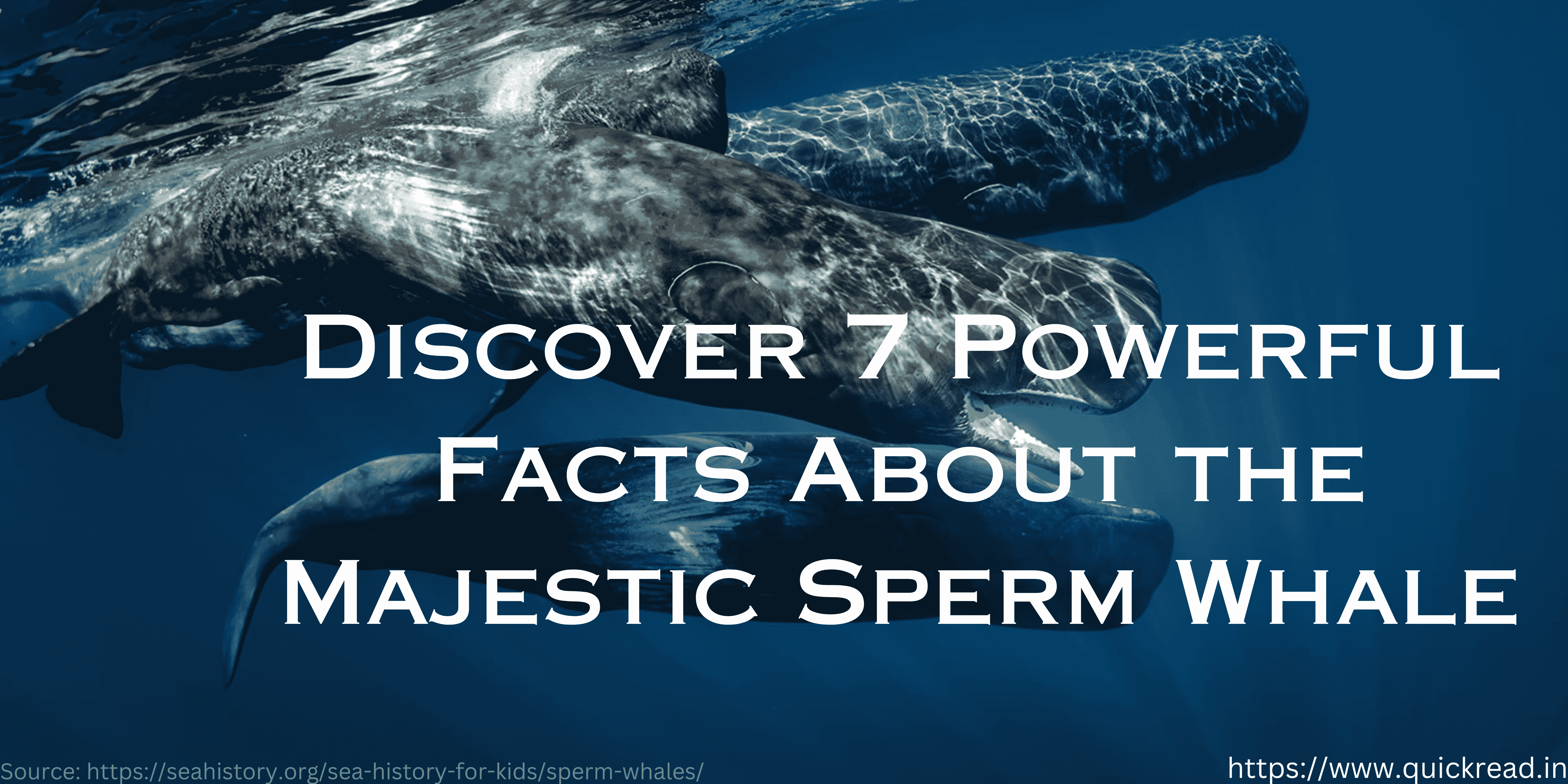What Makes the Sperm Whale So Fascinating?
The majestic Sperm Whale, known by its scientific name Physeter macrocephalus, is a captivating creature that captures the imagination of marine enthusiasts and researchers alike. With its massive size, unique appearance, and intriguing behaviors, this magnificent whale has earned its place as a captivating subject of study and awe.
Appearance and Physical Characteristics
A Glimpse into the Gigantic Frame
The Sperm Whale’s physical attributes are truly remarkable. It possesses the largest brain of any creature on Earth and can reach astounding lengths of up to 60 feet. Its enormous head accounts for a third of its body length and houses a unique feature, the spermaceti organ. This organ plays a crucial role in the whale’s survival and communication.
The Mysterious Spermaceti Organ
The spermaceti organ is a structure found in the head of the Sperm Whale that holds a semi-liquid wax called spermaceti. Scientists have long puzzled over the purpose of this organ. Some theories suggest that it aids in buoyancy control or helps with echolocation, while others propose that it plays a role in sound production during social interactions.
Habitat and Distribution
The Vast Oceans as the Sperm Whale’s Playground
Sperm Whales can be found in all major oceans around the globe, from the frigid waters of the Arctic to the tropical seas of the equator. They are known to prefer deep oceanic waters, especially near underwater canyons and continental slopes, where their primary food source thrives.
The Hunt for Squid
The Sperm Whale’s diet mainly consists of squid, particularly the colossal and giant squid species. To catch its prey, this magnificent creature dives to astonishing depths of up to 3,280 feet and remains submerged for extended periods, showcasing its impressive diving abilities.
Social Structure and Communication
Tales of Family Bonds and Vocal Talents
Sperm Whales are highly social creatures, often forming family units known as pods. These pods, led by a dominant female called the matriarch, can consist of up to 20 individuals. Within these tight-knit groups, Sperm Whales communicate through a series of distinct vocalizations, known as clicks and codas. The clicks serve various purposes, including navigation and hunting, while codas are believed to be a form of social bonding.
The Legendary White Whale: Moby Dick
When discussing Sperm Whales, it’s impossible not to mention the famous literary character, Moby Dick. In Herman Melville’s classic novel, this mythical white whale becomes the ultimate symbol of obsession and revenge. Although the story is a work of fiction, it has undoubtedly contributed to the enduring fascination with these awe-inspiring creatures.
Conservation Status and Threats
Protecting the Giants of the Sea
Despite their grandeur, Sperm Whales face several significant threats in their natural habitats. These include entanglement in fishing gear, underwater noise pollution, climate change, and collisions with ships. Efforts to protect these magnificent creatures involve implementing stricter regulations on fishing practices, establishing marine protected areas, and raising awareness about the importance of conservation.
Frequently Asked Questions (FAQs)
Q: A sperm whale’s breath holding capacity is how long?
A: Sperm whales are exceptional divers and can hold their breath for up to 90 minutes during deep-sea dives.
Q: Are sperm whales aggressive towards humans?
A: Sperm whales are not known to be aggressive towards humans and typically avoid interactions.
Q: How do sperm whales communicate?
A: Sperm whales communicate using a complex system of clicks and whistles, which can travel long distances underwater.
Q: What is the purpose of the spermaceti organ in sperm whales?
A: The spermaceti organ in sperm whales is believed to play a role in buoyancy control, echolocation, and focusing sound waves.
Q: How intelligent are sperm whales?
A: Sperm whales possess exceptional brainpower and exhibit signs of self-awareness, making them highly intelligent creatures.
Q: What is the ecological role of sperm whales?
A: Sperm whales help maintain a balanced marine ecosystem by regulating the population of deep-sea squid, such as the giant squid, and providing sustenance to other deep-sea organisms through their carcasses.
Conclusion
Unveiling the Mysteries of the Sperm Whale
In conclusion, the Sperm Whale continues to captivate and mystify us with its sheer size, intriguing behaviors, and the enigmatic spermaceti organ. As we strive to understand and protect these majestic creatures, it is crucial to appreciate their vital role in the marine ecosystem and recognize the urgent need for conservation efforts. The Sperm Whale’s story is an ongoing saga, waiting to be further unraveled by the passionate individuals dedicated to unlocking its secrets.
Read more about Animals


